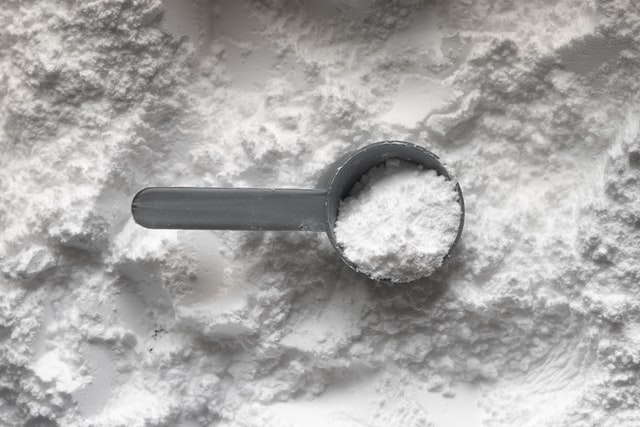Creatine monohydrate has been the subject of the vast bulk of research into its impact on performance and health, however there are numerous additional forms of creatine, such as HCL.
Creatine is arguably as important as whey protein when it comes to maximising muscle growth and strength gains during resistance training for athletes. The fact that it has been shown to be effective in numerous studies makes it a valuable tool for muscle development. What good does it do? Taking a creatine supplement might increase your body’s creatine levels. Phosphocreatine is the form of creatine that muscles use to store creatine for later use.
When you lift weights or perform other high-intensity exercises, your muscles produce phosphocreatine to provide them a boost of energy. Creatine enhances protein synthesis by drawing water into muscle cells. Your body uses this rapid source of energy when performing high-intensity, short-burst tasks like sprinting or lifting heavy weights.
Creatine enhances ATP production, which in turn helps muscles perform harder and more efficiently during exercise.
However, there is more than one common type of this miraculous supplement. The question is, however, what constitutes the distinction, and which is the superior option.
The difference between HCL and monohydrate
- The term “creatine” refers to more than one chemical structure. Creatine monohydrate and creatine hydrochloride are the most widely used forms.
- Both HCL and monohydrate are used to accomplish the aforementioned goals, they take different forms.
- The creatine in creatine hydrochloride, or creatine HCL, has been chemically bonded with hydrochloric acid to increase its solubility and absorption.
- Your body will be able to metabolise it more quickly, and your muscle cells will be able to absorb it more efficiently. Because it enters the bloodstream more rapidly, water retention is less of an issue, and there are less negative effects.
- The creatine is more stable because of the hydrochloric acid linked to the muscle. This also means there is no need for a loading phase, unlike with monohydrate.
- However, let’s not get ahead of ourselves.
- Creatine monohydrate is the first and still the most popular form of creatine supplementation. In this regard, there is more evidence of its efficacy than there is for any other type. The fact that it’s so near perfect (about 99.8 percent) and cheap is a huge plus.
So, what do the findings imply?
Creatine HCL was found to be more soluble than creatine monohydrate in the earliest experiments, but is this really the case?
Effectiveness
Unfortunately, there is a lack of high-quality research on creatine HCL. Researchers from Vanderbilt University examined the effects of creatine HCL and creatine monohydrate when added to water separately.
More HCL was dissolved in the water after filtering, but this proves nothing about its safety or efficacy beyond the fact that it is easier to drink.
Since further studies are needed to determine HCL’s effects on muscle growth, the verdict is still out. Numerous research have been published on the efficacy of creatine monohydrate, thus it is a safe bet to say that it is a beneficial supplement. Extensive studies have been conducted on its potential to improve strength, recuperation times, and muscular growth.
Cost
When purchasing monohydrate, you will see a greater return on your investment. Monohydrate makes up for HCL’s lesser daily doses with cheaper per-serving pricing and larger container sizes.
Convenience
When compared to creatine monohydrate, which necessitates a loading period of 15–20 grammes and then 5 grammes on a daily basis to maintain your muscles saturated, creatine HCL just needs a daily dosage of about a quarter of a teaspoon, according to expert studies.
There is scant evidence to support the claim that HCL is more practical than the other supplement. We prefer supplements that have been shown to function, and while it’s true that HCL is effective in low dosages, making it more portable, monohydrate has been shown to work at this level of dosing as well.
Purity/Safety
Since more than one study has shown that creatine monohydrate is safe and fine for persons without pre-existing medical difficulties, this is pretty much a no-brainer. In addition, its long-term safety has been shown, which is encouraging news for anyone planning to take creatine supplements repeatedly.
Due to a lack of comparable studies, “no contest” must be declared in this case because creatine HCL. Creatine monohydrate, then, is the way to go if you’d like the peace of mind that comes with using a tried-and-true product. Creatine monohydrate is the most concentrated form of the supplement.
What You Should Remember
Creatine HCL has several benefits, such as fast absorption, little negative effects, and low dosages.
Creatine monohydrate, on the other hand, has been around for a lot longer than any of the others, and it has been proven effective, cheap, and clean by a lot more studies than any of the others.
Check with your doctor before taking creatine if you have any concerns that it could interact negatively with a medical issue you already have.

